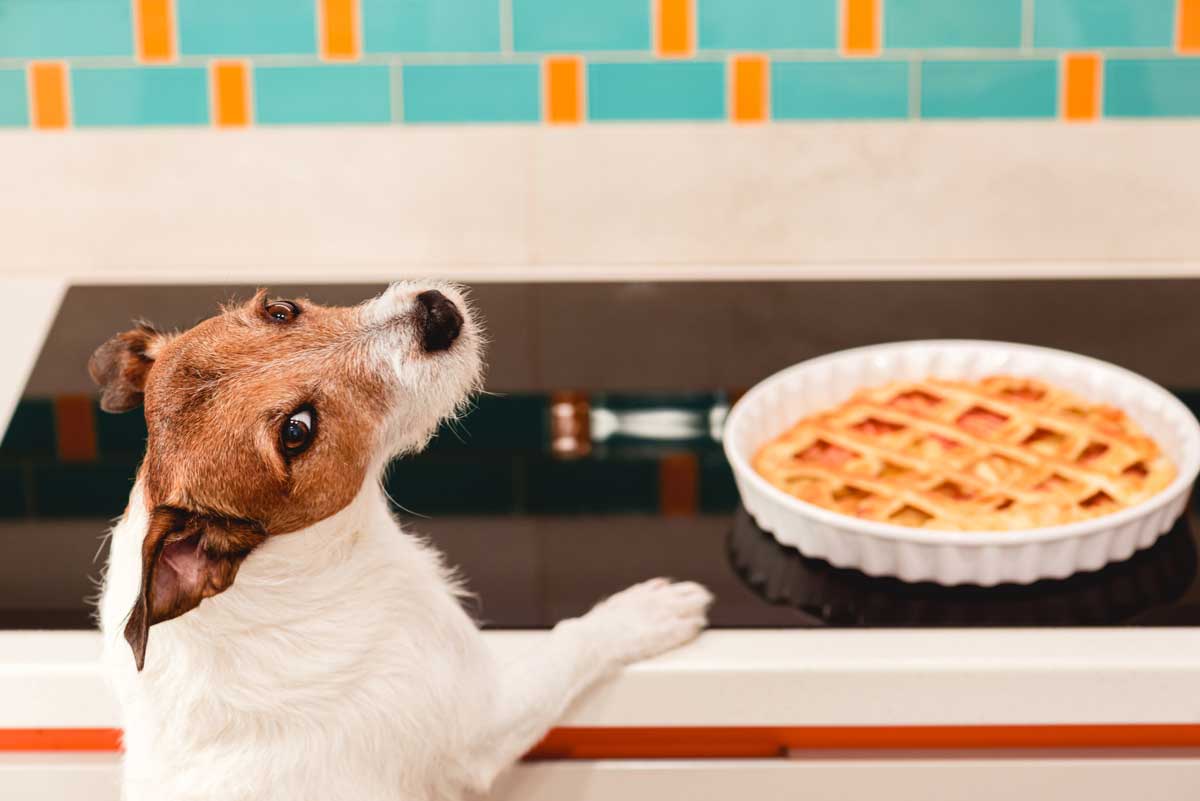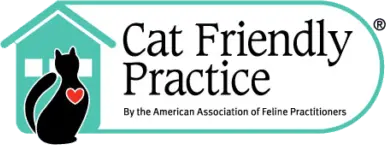As the leaves turn and the air chills, you may find your thoughts wandering to Thanksgiving dinner. You daydream about appetizers, sides, and desserts, and wonder what—if anything—you can share with your pet. After all, what better way to express your thankfulness for their unconditional love and companionship than through your mutual love of food?
Unfortunately, the Thanksgiving table is a cornucopia of health hazards for pets. To ensure their safety this holiday season, follow our menu guide to safe and unsafe Thanksgiving foods.
Can my pet eat turkey?
Yes, with caveats. When it’s time to carve the bird, only specific cuts are safe for dogs and cats. Boneless, white, lean meat, such as turkey breast, is a meat option for pets that is healthy in moderation. No matter how much your pet begs, do not give them turkey skin, which is greasy, high in fat, and seasoned with potentially irritating spices and pet toxins, such as garlic, or onion.
Pet-safe option — Boneless, skinless, white turkey meat, in moderation. Note that pets should not eat any meat that has been fried, seasoned, or marinaded.
Can I let my pet chew on a turkey leg or the wishbone?
No. Raw or cooked bones are incredibly dangerous for pets, and never recommended for chewing. Bones can cause choking, or may splinter and lacerate the mouth, esophagus, and digestive tract. Bones can become lodged anywhere along the upper or lower gastrointestinal tract, and then require life-saving endoscopic or surgical removal.
Pet-safe options — Consider substituting C.E.T. Veggie Dent chews. Supervise your pet while chewing, and adjust their meals to prevent weight gain.
Can my pet eat stuffing or dressing?
No. Whether you stuff or dress your bird, these seasoned sides often contain onions, chives, leeks, and garlic, which belong to the Allium family, and are extremely toxic to pets. The flavor enhancers are unaltered by cooking, dehydrating, or drying. Only a small amount is necessary to cause oxidative hemolysis, damaging the red blood cell’s ability to carry oxygen, and resulting in anemia.
Pet-safe options — Stuff a food toy with the pet-safe ingredients on this list—try Kong’s Thanksgiving Feast recipe, or Merrick’s Thanksgiving Day Dinner for dogs. Err on the side of moderation though as rapid diet changes in dogs are often problematic.
Can my pet have any side dishes?
Yes, but only plain. While the foundation ingredient in many popular side dishes, such as mashed potatoes, yams, and green bean casserole, are healthy for pets, adding butter, salt, sugar, and aromatics (e.g., garlic, chives, onion) makes them dangerous. Before offering your pet a tasty side dish sample, ask yourself why the taste is so good—if the reason is that it’s sweet, salty, or fatty, put it back on your plate—and maybe reach for the salad bowl.
Pet-safe options — These ingredients must be plain: Green beans, carrots, white mashed potato, mashed sweet potato, pureed pumpkin – not pie filling
Corn is safe for dogs only when removed from the cob. Dogs commonly swallow corn cobs, which can form an obstruction in the stomach or small intestine.
Here is a list of foods that are toxic to dogs:
- Chocolate
- Xylitol (often found in sugar-free gum)
- Macadamia nuts
- Grapes and raisins
- Onions
- Garlic
- Alcohol
- Caffeinated drinks
- Raw yeast dough
- Raw or undercooked meat
Can my pet have dessert?
Yes—but only pet-safe desserts. Dogs and cats may not possess as many taste buds as their owners, but they love sweets all the same. You’ll need to hold your pet back from the buffet table, however, as excessive fat can trigger pancreatitis in dogs, and many beloved baked goods contain harmful or toxic ingredients.
Dangerous dessert ingredients include chocolate, raisins, currants, and macadamia nuts—which can all cause devastating harm, from arrhythmias, to neurological disorders, to kidney failure. Pay close attention to store-bought or sugar-free desserts, which may contain xylitol, a sugar substitute that causes a dangerous drop in blood sugar and potential liver failure in dogs.
Pet-safe options — Pumpkin puree—not pie filling—topped with crushed graham crackers, and a plain yogurt dollop.
Are other Thanksgiving items hazardous for pets?
Yes. Owners who are vigilant about guarding their Thanksgiving table may overlook another tempting food source—the trash can. Pets cannot resist holiday garbage, which contains the remnants of all those delectable dishes, including turkey bones, pan drippings, potato peel, and juice and grease-covered foil, plastic wrap, and cooking twine. Keep trash cans behind a closed door during the holidays, and put especially tempting items, like the turkey carcass, directly in the garage, or store in the freezer.
Food isn’t the only table-top item that will entice your pet. They may want a closer look, or to taste, decorations, floral arrangements, and candles. Keep small decor items in glass containers or out of reach, check bouquets for toxic flowers (e.g., chrysanthemums and autumn crocuses), and consider using flameless candles around pets to prevent curious paws from getting burned, or starting a fire.
Finally, please be aware of hot items such as smokers and fryers. Also, at Thanksgiving, there are likely to be houseguests who are unfamiliar with pets so remind everyone to close doors and gates and remain watchful.
Having a happy Thanksgiving with your pet
Although the holidays can bring out your generous side, you must remember that dogs and cats cannot handle rich savory and sweet foods. Giving in to their pitiful glances and hungry eyes may give them a momentary thrill, but may ultimately end in illness, hospitalization, or an emergency situation.
For your pet’s health this holiday season, keep them on their regular diet and routine as much as possible. And, if you must share with your pet, speak with your veterinarian about these pet-safe options. And remember, feed all treats in moderation, to prevent digestive upset or weight-gain.
If you have additional questions about holiday safety, contact your pet’s veterinarian. If your pet is experiencing a non-life threatening, after-hours emergency, UrgentVet can help.





